“While not a problem for everyone transitioning
through menopause the risk of mood changes and
/symptoms of depression and anxiety are higher…”.1
Umbrella
What may the Menopause Blues Umbrella include?
Depending on the Source (DotS) this Umbrella may include:
- Blue Moods
- Depressed Mood
- Dysphoria
- Feeling Blue
- Feeling Sad
- “Menopause Blues”
- “The Blues”
Menopause
Is there an association between menopause and the menopause blues?
In Menopause and Mental Health, content updated February 2023, the Australasian Menopause Society (AMS) explain:
While the risk is higher for women in the age-related and natural menopausal transition, women might also have a higher risk of mood changes after menopause caused by surgery such as hysterectomy or if the ovaries have been removed. Depression also occurs at a higher rate in women with a lack of oestrogen caused by primary ovarian insufficiency”.2
Menopause Mood Changes
What menopause mood changes may we experienced?
In Symptoms of Menopause: Mood and Emotional Health, last updated 21 April 2024, the (Australian) Jean Hailes for Women’s Health (JH) elaborate on:
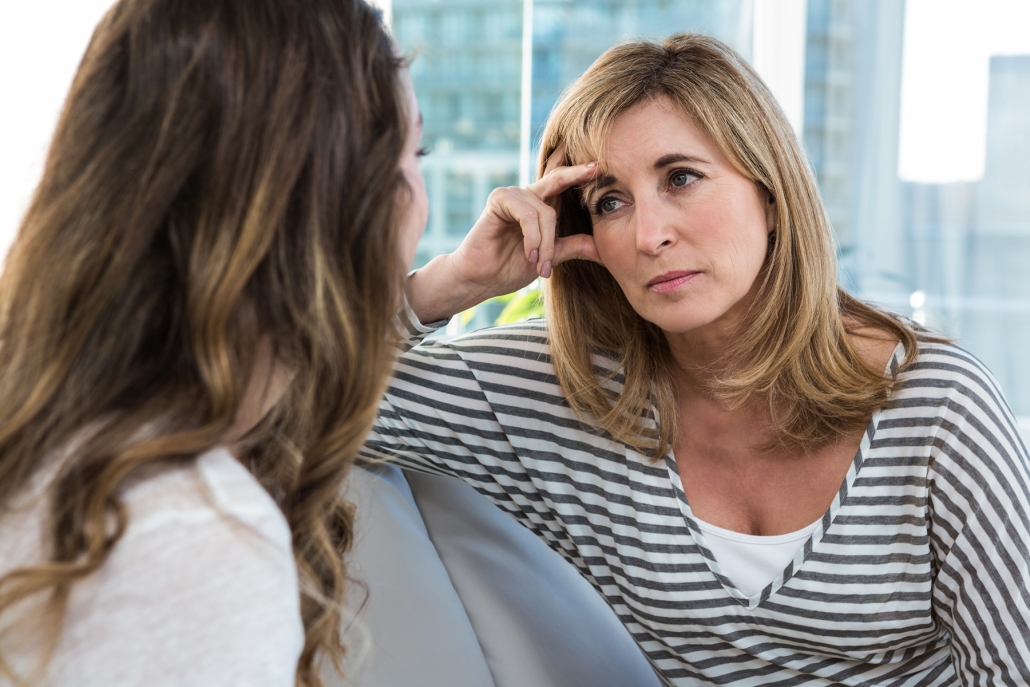 “You may notice that menopause causes your mood to change. This is due to changing hormone levels. You might experience:
“You may notice that menopause causes your mood to change. This is due to changing hormone levels. You might experience:
- Irritability
- Increased anger
- Low mood
- Depression and anxiety”.3
Depression
Does menopause cause depression?
According to the AMS in What Is Menopause? Physical Symptoms and Changes of Menopause: 3. Psychological and Cognitive Symptoms of Menopause:
“Depression is not more common at menopause than at other stages of life, but a past history of depression, particularly post-natal depression, and stress during the peri-menopause may make a woman more likely to succumb to mood problems”.4
In Symptoms of Menopause: Mood and Emotional Health the JH note:
Women who have a history of depression or premenstrual syndrome (PMS) may be more likely to develop depression during this time”.5
On page one and two in Emotional Wellness In Menopause: What About Depression?, published date June 2023, the (British) Women’s Health Concern (WHC) elaborate on:
Contributing Factors
What may be contributing factors to feeling depressed?
In Menopause and Mental Health: Mental Health Symptoms Related To Menopause, content updated February 2023, according to the AMS:
Some of the common physical, memory and thinking symptoms related to menopause (hot flushes, night sweats, sleep and sexual disturbances, weight changes and “brain fog”) can complicate and overlap with mental health symptoms.
Another complicating factor is stress related to life circumstances. Feeling stress is common during middle age as personal and environmental changes take place. This can have a strong effect on mood in some women…”.7
Self Care
How can we look after our selves?
In Caring for Your Mental Health: How Can I Take Care of My Mental health the (United States) National Institute of Mental Health elaborate on:
Here are some self-care tips:
- Get regular exercise. Just 30 minutes of walking every day can boost your mood and improve your health. Small amounts of exercise add up, so don’t be discouraged if you can’t do 30 minutes at one time.
- Eat healthy, regular meals and stay hydrated…
- Make sleep a priority…
- Try a relaxing activity…
- Set goals and priorities…
- Practice gratitude…
- Focus on positivity…
- Stay connected…”.8
In Looking After Yourself During Menopause: Emotional Wellbeing the JH explain:
 “There are many practical things you can do look after your emotional wellbeing.
“There are many practical things you can do look after your emotional wellbeing.
For example:
- Talk to someone you trust about your feelings (e.g. your friend, family member, doctor or psychologist)
- Keep a diary of your symptoms
- Take time for yourself and do things you love doing
- Get quality rest when you can
- Do regular physical exercise, especially in a group or with friends
- Practise relaxation techniques
- Pay attention to your inner voice and practise using positive affirmations”.9
Online Resources, Programs, Apps and e-therapies
Are mental health online resources, programs, Apps and e-therapies available?
Depending on your Country, mental health online resources, programs, Apps and e-therapies may be available.
Your health care provider or local community health center may know of your Country’s recommended mental health online resources, programs, Apps and e-therapies, similar to the (Australian) Department of Health’s thiswayup.org.au
Treatments
What treatments are available?
On page one in Emotional Wellness In Menopause: What Treatments Are Available? the WHC elaborate on:
- Anti-depressants can help with emotional and cognitive symptoms of the menopause. However, unless you have been diagnosed with depression, there are other treatments which may be more helpful and appropriate
- Hormone Replacement Therapy (HRT) can help with many cognitive and emotional symptoms of menopause. HRT can also help improve quality of sleep. It’s useful to keep a record of symptoms to discuss with your HRT prescriber as this will help identify the best HRT regime for you
- Cognitive Behavioural Therapy (CBT) and other talking therapies can be hugely beneficial in dealing with some of the emotional symptoms of menopause. Even women who have never used therapies before and them helpful to navigate their menopause journey
- Mindfulness and meditation are popular techniques to help relax and clear the mind – a very useful addition to managing some of the emotional and cognitive symptoms of menopause. Alongside restorative exercise such as yoga and Pilates, both body and mind can recover and heal”.10
Menopausal Hormone Therapy
May menopausal hormone therapy (MHT) be beneficial in improving mood?
In Mood and the Menopause: Management the AMS note:
What is VMS?
VMS can be an abbreviation for Vasomotor Symptoms.
What is RCTs?
RCTs can be an abbreviation for Randomised Control Trials.
Health Care Provider
What if I would like help with my menopause blues?
If you would like help with your menopause blues, it may be in your best interest to choose to talk to your health care provider about this.
In Looking After Yourself: Emotional Wellbeing – Talk To Your Doctor the JH encourage us to seek help:
Health Topics A-Z
Where may I find Health Topics A-Z related to Menopause Blues?
In Health Topics A-Z you may find:
Links
Where may I find Links related to Menopause Blues?
Your Country may have Links similar to:
Links
This Links List to third party websites is neither comprehensive nor exhaustive. Inclusion on this Links List does not imply endorsement or recommendation. Non-inclusion on this Links List does not imply non-endorsement or non-recommendation. Third party websites are not under the control of Meno Martha International Menopause Directory. Third party websites may contain explicit medical images and/or sexual references. Please read Meno Martha International Menopause Directory’s Links Policy before proceeding to a Link. Please contact Webmaster if you experience a problem with a Link.New or Updated
- Consumer Video and Podcast Series: 2024 Consumer Videos and Podcasts – Cognitive Behavioral Therapy and Menopause
- Consumer Video and Podcast Series: 2025 Consumer Videos and Podcasts – Nutrition At Menopause and Why It Is Important [12 February 2025]
- Is Hormone Therapy A Key Strategy In Treating Menopausal Depression? [Video] [17 May 2024]
- Videos & Podcasts: Videos – Menopause and Hormone Therapy: Current Perspectives and Controversies [18 October 2024]
- Anxiety
- Anxiety Self-Help Guide
- Askearlymenopause.org [Ask EM] [+ Video: What Is Early Menopause?]
- Boost Your Mood With Mind-Nourishing Food
- Change In Behaviour During Menopause
- Cognitive Behaviour Therapy (CBT) for Menopausal Symptoms
- Cognitive Behavioural Therapy (CBT)
- Consumer Video and Podcast Series: 2023 Consumer Videos and Podcasts – NAMS 2023 Nonhormone Therapies Position Statement for Bothersome Menopause Symptoms
- Consumer Video and Podcast Series: 2024 Consumer Videos and Podcasts – Cognitive Behavioral Therapy and Menopause
- Consumer Video and Podcast Series: 2024 Consumer Videos and Podcasts – Preparing for Your Menopause Healthcare Visit
- Consumer Video and Podcast Series: 2025 Consumer Videos and Podcasts – Nutrition At Menopause and Why It Is Important
- Depression
- Depression In Women: 5 Things You Should Know
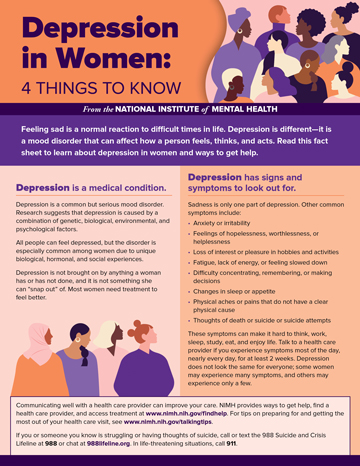
- Depression [+ Video Courtesy: Mayo Clinic News Network]
- Depression and the Menopause
- Diet and Mental Health
- Does Menopause Hormone Therapy Improve Symptoms of Depression? Findings From A Specialized Menopause Clinic
- Does Menopause Really Cause Depression?
- Dr Louise Newson Discusses Mental Health and Hormones
- Emotional Wellness In Menopause
- Exercising Your Way Out of Depression
- Experts Answer Your Menopause Questions In New Video
- Find A Menopause Practitioner [United States and Other]
- Find An AMS Member [Australasian Menopause Society i.e. Australia and New Zealand]
- Find Your Nearest BMS Menopause Specialist [British Menopause Society]
- HRT Questions Answered
- How Mindfulness Meditation Improves Mental Health
- How To Choose the Best Mental Health App for You
- How To Manage Menopausal Insomnia
- Later Years (Around 50 Years and Over): Menopause and Post Menopause Health – Menopause and Your Mental Wellbeing [+ Video: Menopause Only Affects You Physically!]
- Later Years (Around 50 Years and Over): Menopause and Post Menopause Health – Signs and Symptoms of Menopause [+ Video: Talking Menopause With Your GP]
- Later Years (Around 50 Years and Over): Menopause and Post Menopause Health – Supporting Someone Through the Menopause [+ Video: Men Don’t Need To Know About Menopause]
- Let’s Talk About Perimenopause
- Looking After Yourself During Menopause
- Low Mood, Sadness and Depression
- Mastering Midlife Mood Changes With Marlene Freeman, MD
- Mayo Clinic Minute: How Lifestyle Changes May Help Manage Menopause Symptoms [+ Video Courtesy: Mayo Clinic News Network]
- Mayo Clinic Minute: Prescribing Nature for Mental, Physical Health [+ Video Courtesy: Mayo Clinic News Network]
- Menopause
- Menopause
- Menopause
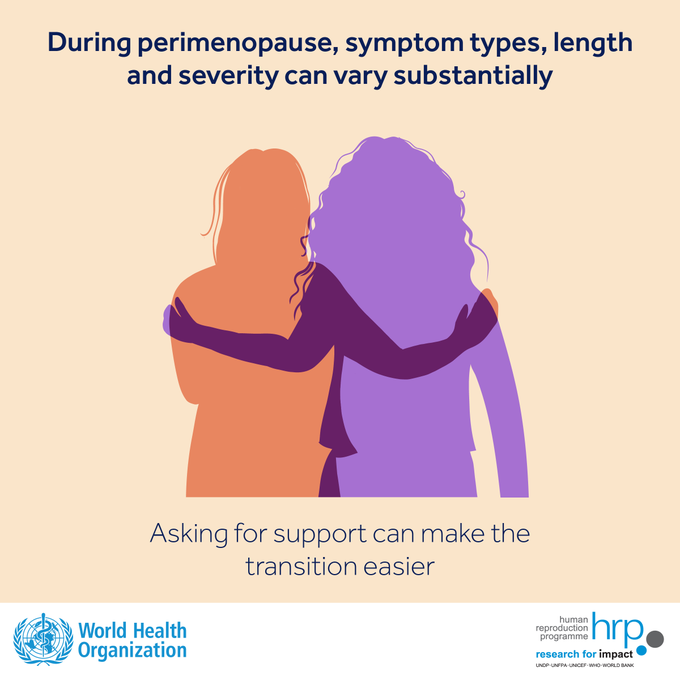
- Menopause Depression: Under Recognised and Poorly Treated
- Menopause Map: Downloadable Resources – My Personal Path Print Tools: Questions for Your Health Care Provider
- Menopause Map: Downloadable Resources – My Personal Path Print Tools: Relaxation Techniques
- Menopause Map: Downloadable Resources – My Personal Path Print Tools: Symptom Tracker
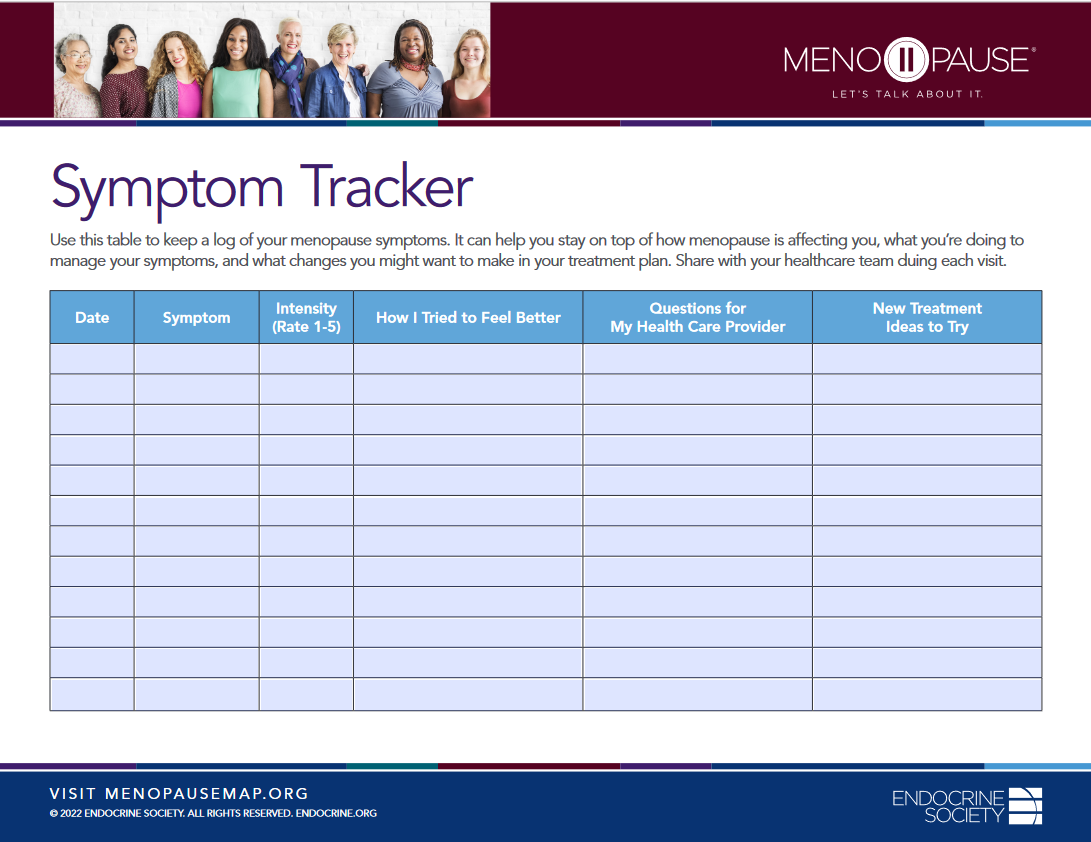
- Menopause Patient Information [Videos] 2. Talking To Your GP About Menopause
- Menopause Preparedness Toolkit Video Series: Lifestyle Tips for Menopause Wellness
- Menopause Preparedness Toolkit Video Series: Mindfulness & Wellbeing During the Menopause Transition
- Menopause Preparedness Toolkit: A Woman’s Empowerment Guide
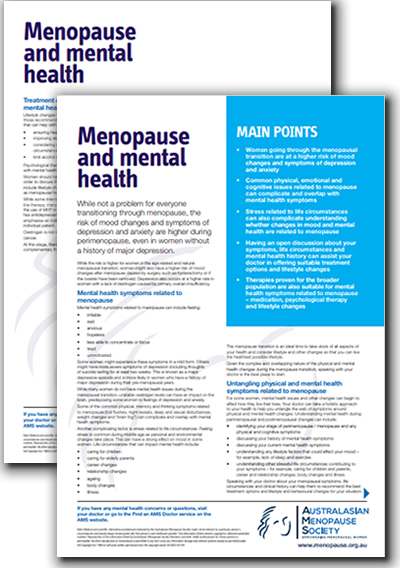
- Menopause Symptoms: Mayo Clinic Expert Outlines Hormone and Nonhormonal Therapies
- Menopause Treatments: What Works, What Doesn’t
- Menopause and Depression: Is There A Link?
- Menopause and Mental Health
- Menopause: Ensuring A Tranquil Transition
- Menopause: Identification and Management [NICE Guideline Published: 12 November 2015 Last Updated: 07 November 2024]

- Menopause: Identification and Management: NICE Guideline [NG23] Published: 12 November 2015 Last Updated: 07 November 2024
- Menopause: Things You Can Do
- Menopause: Understanding the Changes and Finding Relief | Dr Susan Davis | The Proof Podcast EP 256
- Mental Health: Mental Health Self Help Guides
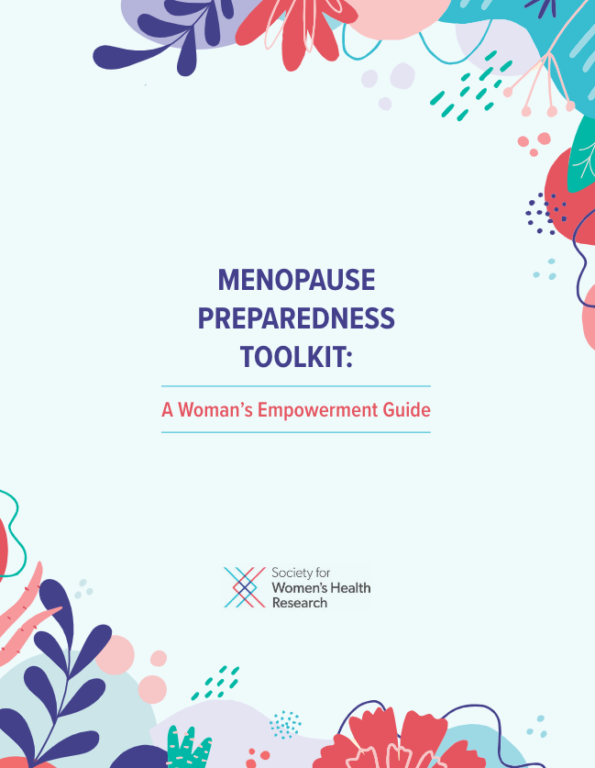
- Mood and the Menopause
- Mymenoplan.org [My Menoplan, United States]
- National Center for Complementary and Integrative Health: 8 Things to Know About Depression and Complementary Health Approaches
- National Center for Complementary and Integrative Health: Depression
- National Center for Complementary and Integrative Health: Herbs At A Glance
- National Center for Complementary and Integrative Health: How Safe Is This Product or Practice?
- National Center for Complementary and Integrative Health: Know the Science: How Medications and Supplements Can Interact
- National Center for Complementary and Integrative Health: St. John’s Wort
- National Institute of Mental Health: Depression
- Navigating Menopause: Expert Insights and Solutions | Dr Susan Davis | The Proof Podcast EP 245
- “Not feeling like myself” in perimenopause — what does it mean? Observations From the Women Living Better Survey
- Not Feeling Like Yourself Lately? How To Get Out of A Funk
- Office of Dietary Supplements: Vitamin B6
- Our Best Mental Health Tips – Backed By Research
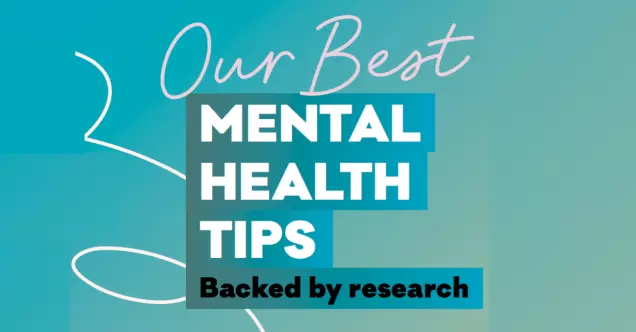
- PMS and PMDD | Dr Louise Newson [Video]
- Perimenopause
- Perimenopause
- Perimenopause and Menopause Checklist: Translated Checklists
- Perimenopause and Menopause Symptom Checklist

- Probiotics May Help Boost Mood and Cognitive Function
- Promoting Good Mental Health Over the Menopause Transition
- R U OK? Day [12 September 2024, Australia]
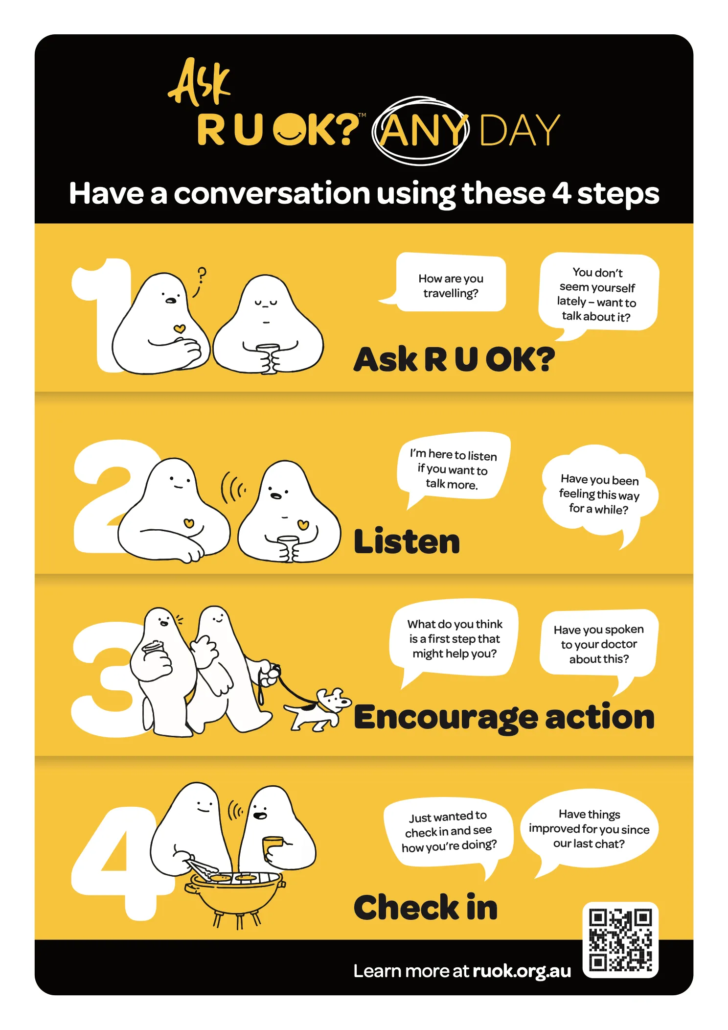
- Self-Help Tool: Menopause and Mental Wellbeing
- Supporting A Loved One Through Menopause
- Talking To Your GP About Your Mental Health
- The Impact of the Menopause
- The Menopause Society Statement on Misinformation Surrounding Hormone Therapy [September 2024]
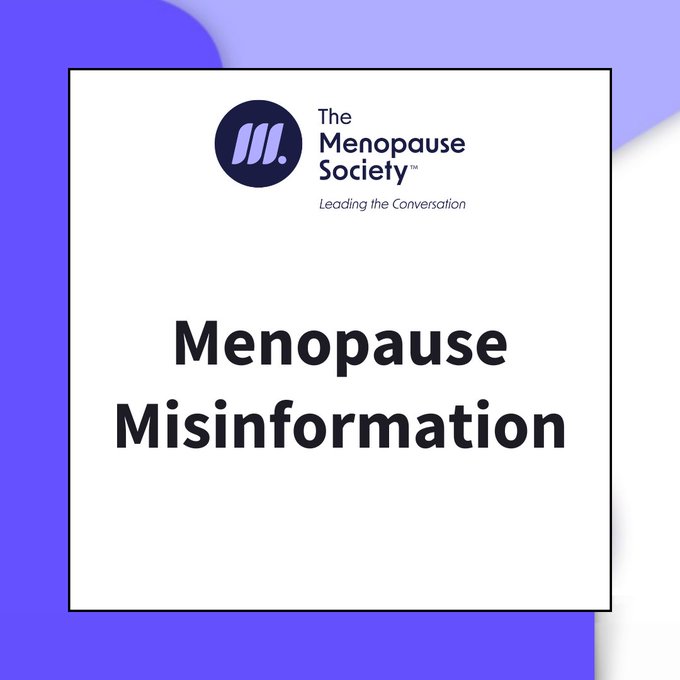
- The Truth About Menopause Supplements | Dr Sarah Berry
- Therapy Could Be Effective Treatment for Non-Physical Symptoms of Menopause
- Thiswayup.org.au [This Way Up, Australia]
- Tips To Help Manage Menopause Symptoms
- Top Tips To Improve Your Mental Wellbeing
- Types of Therapist: How To Find & Choose A Therapist – What Is the Difference Between A Psychologist, Psychiatrist and Counsellor?
- Video & Podcast Library: Videos – World Menopause Day 2024: Menopause and Hormone Therapy: Current Perspectives and Controversies
- Videos & Podcasts: Videos – Menopause and Hormone Therapy: Current Perspectives and Controversies
- Videos and Podcasts: Videos – Interviews: The Menopause Blues
- What Everyone Should Know About Menopause Symptoms
- What Is Cognitive Behavioral Therapy?
- When Does Perimenopause Start and How Do You Define the Beginning
- World Menopause Day 2024: Leaflet for Women [Multiply Languages]
- World Menopause Day 2024: Poster for Women
Sources
Where may I find the Sources quoted?
You may find the Sources quoted at:
Sources
- Menopause and Mental Health. Content Updated February 2023. Australasian Menopause Society https://www.menopause.org.au/health-info/fact-sheets/menopause-and-mental-health Accessed: 09 March 2025
- Menopause and Mental Health. Content Updated February 2023. Australasian Menopause Society https://www.menopause.org.au/health-info/fact-sheets/menopause-and-mental-health Accessed: 09 March 2025
- Symptoms of Menopause: Menopause & Mood. Last Updated: 02 December 2024 | Last Reviewed: 19 August 2022. Jean Hailes for Women’s Health https://www.jeanhailes.org.au/health-a-z/menopause/menopause-symptoms Accessed: 09 March 2025
- What Is Menopause? Physical Symptoms and Changes of Menopause: 3. Psychological and Cognitive Symptoms of Menopause. Content Created: May 2022. Australasian Menopause Society https://www.menopause.org.au/hp/information-sheets/185-what-is-menopause Accessed: 09 March 2025
- Symptoms of Menopause: Menopause & Mood. Last Updated: 21 April 2024 | Last Reviewed: 19 August 2022. Jean Hailes for Women’s Health https://www.jeanhailes.org.au/health-a-z/menopause/menopause-symptoms Accessed: 09 March 2025
- Emotional Wellness In Menopause: What About Depression? Published Date: June 2023:1-2. Women’s Health Concern https://www.womens-health-concern.org/wp-content/uploads/2023/06/30-WHC-FACTSHEET-Emotional-wellness-in-menopause-JUNE2023-A.pdf Accessed: 09 March 2025
- Menopause and Mental Health. Content Updated February 2023. Australasian Menopause Society https://www.menopause.org.au/health-info/fact-sheets/menopause-and-mental-health Accessed: 09 March 2025
- Caring for Your Mental Health: How Can I Take Care of My Mental Health? Last Reviewed: December 2024. National Institute of Mental Health https://www.nimh.nih.gov/health/topics/caring-for-your-mental-health Accessed: 09 March 2025
- Looking After Yourself During Menopause: Emotional Wellbeing. Last Updated: 20 September 2024 | Last Reviewed: 19 August 2022. Jean Hailes for Women’s Health https://www.jeanhailes.org.au/health-a-z/menopause/mental-health-emotions Accessed: 09 March 2025
- Emotional Wellness In Menopause: What Treatments Are Available? Published Date: June 2023:1. Women’s Health Concern https://www.womens-health-concern.org/wp-content/uploads/2023/06/30-WHC-FACTSHEET-Emotional-wellness-in-menopause-JUNE2023-A.pdf Accessed: 09 March 2025
- Mood and the Menopause: Management. Content Updated February 2023. Australasian Menopause Society https://www.menopause.org.au/hp/information-sheets/mood-and-the-menopause Accessed: 09 March 2025
- Looking After Yourself During Menopause: Emotional Wellbeing – Talk To Your Doctor. Last Updated: 20 September 2024 | Last Reviewed: 19 August 2022. Jean Hailes for Women’s Health https://www.jeanhailes.org.au/health-a-z/menopause/mental-health-emotions Accessed: 09 March 2025








